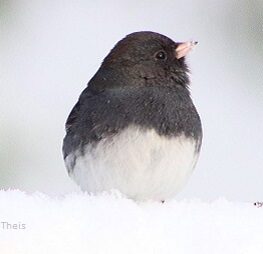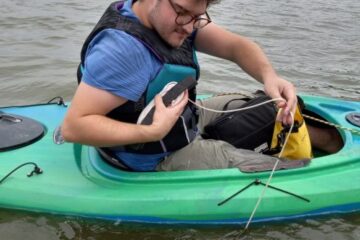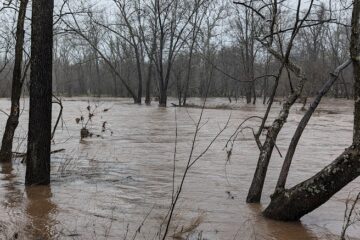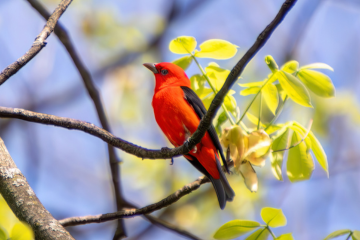 Few things are more cheerful on a cold winter day than watching birds gathering around feeders outside your window. In New Jersey, common wintertime visitors include goldfinches, chickadees, nuthatches, titmice, purple and house finches, juncos, sparrows, woodpeckers, cardinals, blue jays and mourning doves.
Few things are more cheerful on a cold winter day than watching birds gathering around feeders outside your window. In New Jersey, common wintertime visitors include goldfinches, chickadees, nuthatches, titmice, purple and house finches, juncos, sparrows, woodpeckers, cardinals, blue jays and mourning doves.
Feeding birds helps them maintain their strength and energy at a time when their natural food sources – including wild seeds, berries and insects – may be scarce. These extra calories are especially helpful during frigid or snowy weather.
Here are some tips from experts for helping birds this winter:
Place several feeders outside your home, and keep them stocked with high-energy foods like black-oil sunflower seeds, millet, peanuts, cracked corn and suet cakes. A special feeder filled with nyjer or thistle seeds is great for small-beaked birds like finches. Be sure to scatter seeds on the ground or on a platform for birds that prefer to feed at lower levels. Remember that seeds and suet may go quickly during storms and really cold days, so refill feeders frequently or keep extras on hand. If you run out of bird seed or suet, peanut butter on a pinecone will work!
Birds need fresh water to survive, but finding it can be a challenge on the coldest winter days when almost everything is frozen. If you love watching birds, consider installing a heated bird bath in your yard. Some experts advise adding large stones or bricks to prevent birds from plunging into the water and having the water freeze to their feathers.
Provide extra shelter for birds. If you already have evergreen trees and shrubs in your yard, that’s a good start. Help birds even more by creating a brush pile, preferably in a place protected from the wind. If you have a Christmas tree you’re about to discard, that would make an ideal addition!
Keep cats indoors as much as possible. One big factor affecting backyard bird mortality is feline predation. Don’t let your cat sit under feeders waiting to pounce!
Many birds are killed when they fly into windows after seeing the reflections of the sky. Try using static-cling decals on your windows to change their appearance, or hang streamers. Feeders placed close to windows usually aren’t a problem because birds don’t build up enough speed to cause harm.
For detailed information on feeding birds, check out the Cornell Lab of Ornithology website.
(Photo by Lauren Theis, RHA’s Director of Education)



